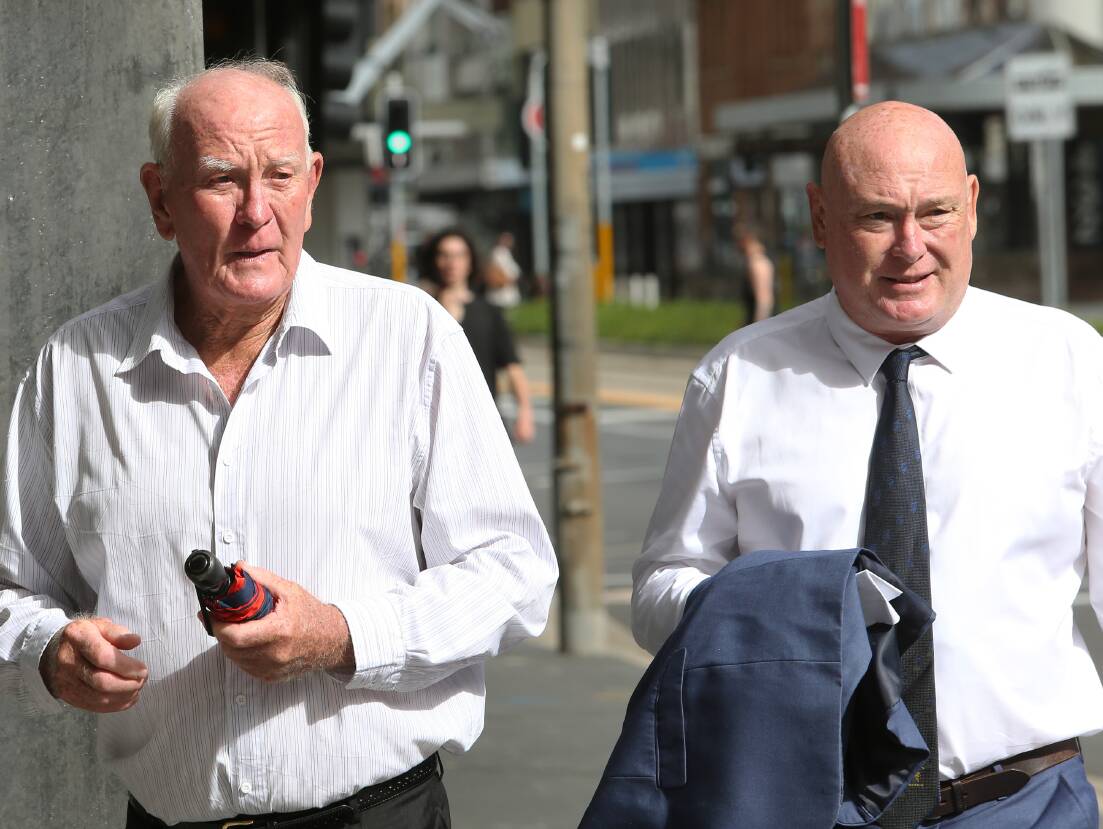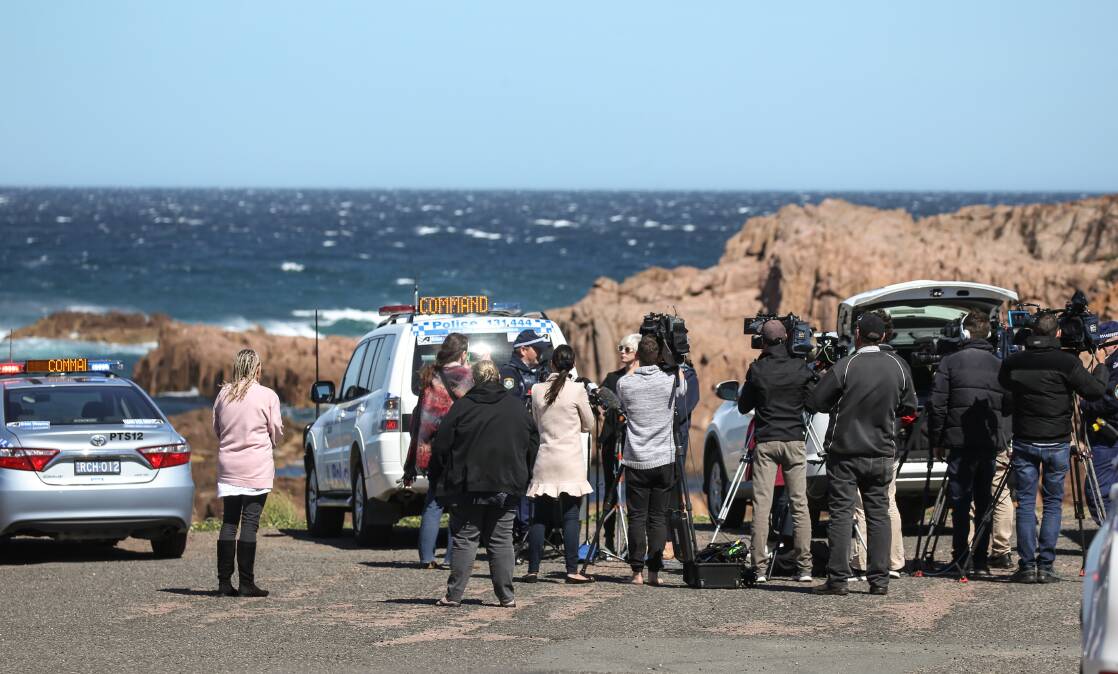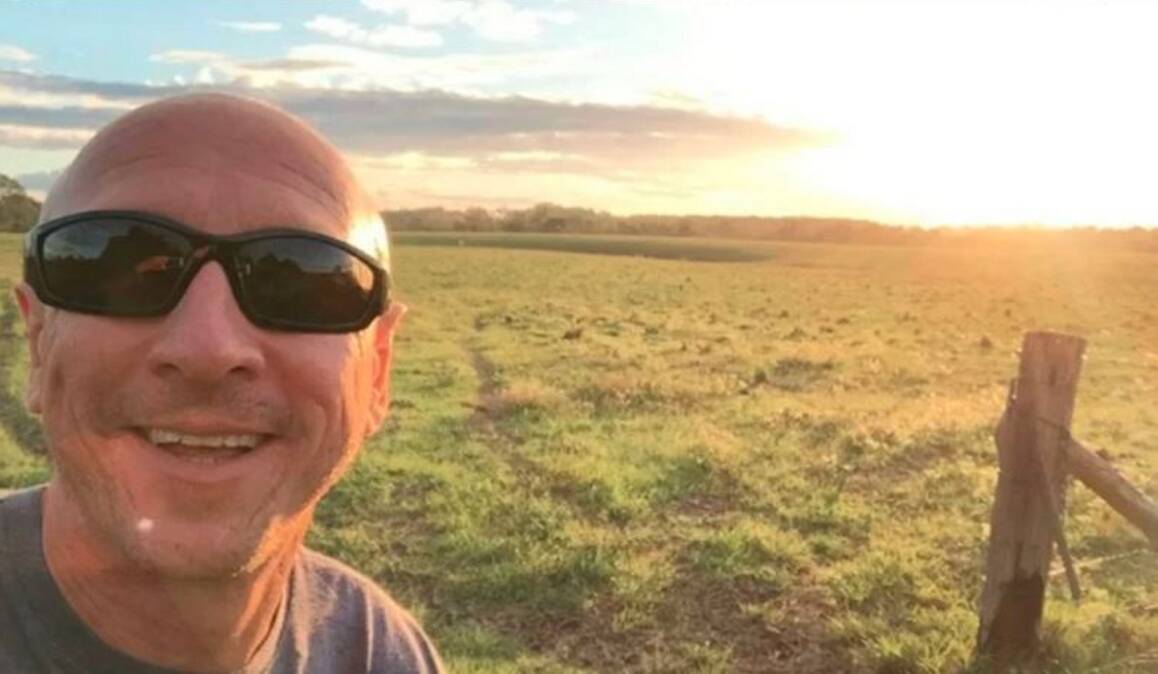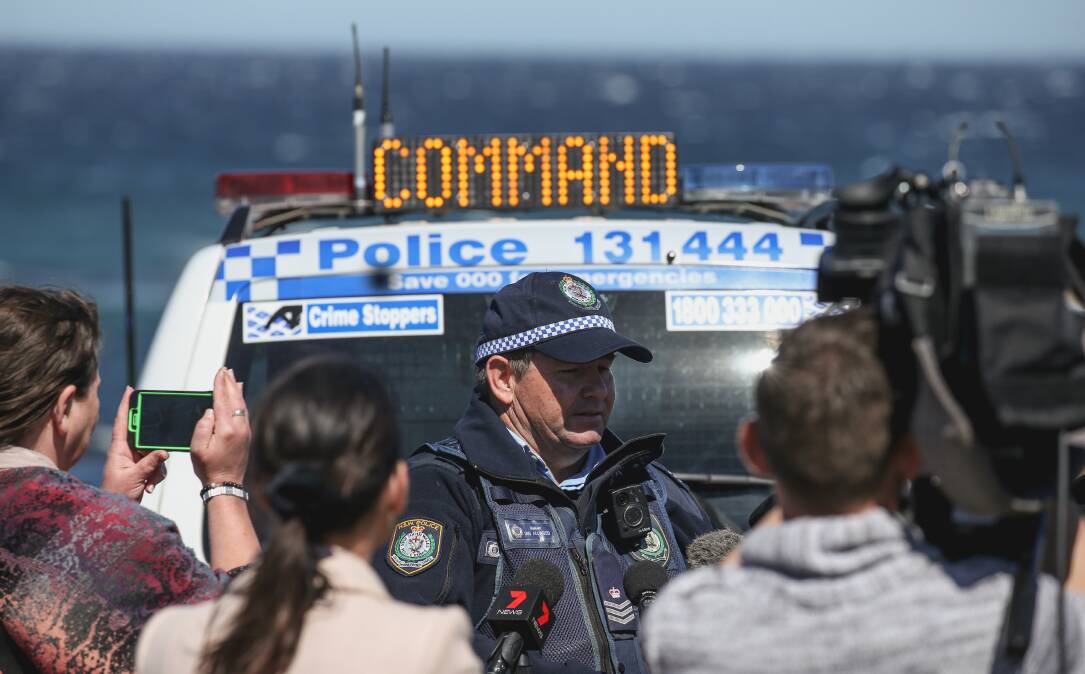
Families of four passengers killed in a helicopter crash off the coast north of Newcastle have been scathing of the "reckless" pilot at an inquest into the deaths.
The "Huey" helicopter disappeared near Anna Bay about 6.30pm on September 6, 2019, amid windy and dusty conditions causing low visibility.
The inquiry, which opened on Tuesday, has heard pilot David Kerr was flying at night without the required equipment or training when he became disorientated and crashed the chopper into the sea.

Queenslanders Jamie Ogden and Grant Kuhnemann and NSW couple Jocelyn Villanueva and Gregory Miller were also on board, and all are believed to have been killed upon impact.
Only two bodies - those of Mr Kuhnemann and Mr Miller - were recovered.
Speaking at the hearing, Gregory Miller's mother said she was seeking legal advice as to whether Mr Kerr had sufficiently discharged his responsibilities as pilot.
The family of Mr Miller's partner - Jocelyn Villanueva - were also angry.
"Joc and Greg tragically trusted the ability of a pilot ... who did not put the safety of his passengers first and foremost," they said in a statement read to the court.
"Joc's death ... was brought about by the reckless decisions of someone who should have known better."

Similarly, Jamie Ogden's brother Darren said the family was devastated to learn the crash possibly could have been avoided.
The pilot's mother, Lorraine Miller, became emotional as she told the other families she shared their grief and attended court to support them.
"To the other families, we are very sorry," she said.
"We will continue to share their grief for many years to come."
In summing up the evidence, the police advocate assisting the coroner Christina Xanthos told the court Mr Kerr had been described by peers as an experienced pilot, and had more than 1400 flying hours under his belt.
"Dave was a smooth and confident pilot ... able to handle the aircraft well," one said.

But both peers of the pilot quoted by Sergeant Xanthos mentioned he was always in a rush, and often running late.
The day in question was no different, she said.
After several hours of delays, at least one passenger suggested they may have to do the flight the next day.
"Witnesses all expressed that the take-off time had been significantly delayed ... (and) there was a consensus of concern," Sgt Xanthos said.
But the flight from Archerfield Airport in Brisbane to Bankstown Airport in western Sydney took off at 2.30pm - 3.5 hours before last light.
Within 10 minutes of twilight, the helicopter disappeared from the radar.
The Australian Transport Safety Bureau later concluded Mr Kerr felt compelled to forge ahead with the planned flight despite the risk, Sgt Xanthos said.
Weather was also a factor, with Bureau of Meteorology determining severe turbulence was likely at the time of the crash.
It had earlier that day issued a warning for severe turbulence between 3pm and 9pm. While Mr Kerr may not have known about the warning, witnesses at the airfield the helicopter refuelled at told police the weather changes could not have gone unnoticed by him.
The extensive investigation ruled out mechanical failure, Sgt Xanthos said, despite one witness telling police he detected a change in engine pitch when the helicopter flew overhead, and thought the aircraft was having problems.
The aircraft had been inspected that morning, with no issues identified, and police had thoroughly investigated whether the aircraft's construction played any role in the accident.
There was nothing to suggest any cause for the crash other than the spacial disorientation of the pilot, investigation lead Detective Sergeant Michael O'Keefe - the inquest's only witness - said.
Coroner Carolyn Huntsman will deliver her findings on Wednesday.







